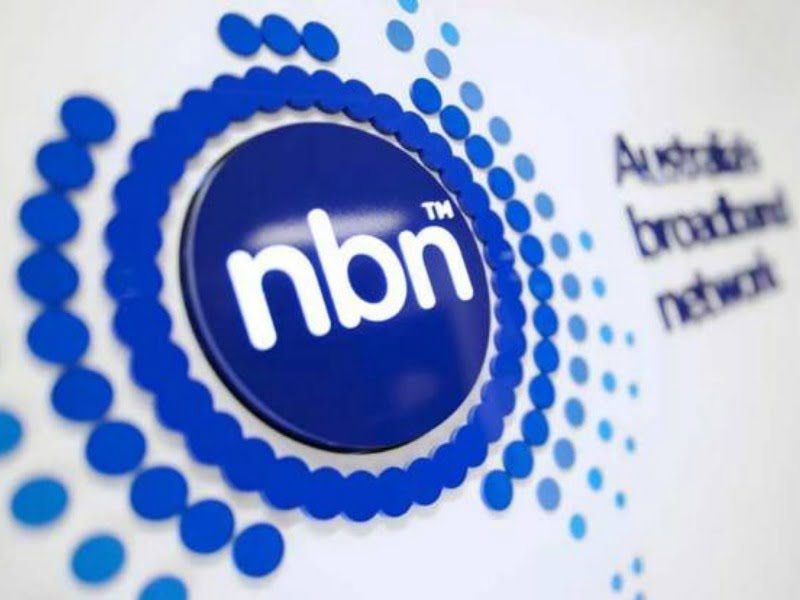The future of telecommunications in Australia has become linked to the success or failure of NBN Co, the government business enterprise that is responsible for connecting premises to the Internet.
Innovation is vital if NBN Co is to deliver on its promise, and to ensure that Australia maintains a sovereign telecommunications capability that encompasses fixed, wireless and satellite technologies.
NBN Co is struggling to move forward, and it is sinking deeper into the former Prime Minister Malcolm Turnbull’s copper quagmire.
In another blow, the Australian Competition and Consumer Commission (ACCC) has rejected NBN Co’s proposed variation to its Special Access Undertaking (SAU).

NBN Co does not appear to be listening to the ACCC and this third effort at varying the SAU was doomed before it was lodged. The ACCC is in good company because NBN Co is not listening to the telecommunications retail service providers and consumers.
The cost of connecting to the National Broadband Network is prohibitive for low-income groups, yet NBN Co does not appear to have adopted a support mechanism, preferring to focus on operating on a purely commercial basis.
The ambit claims in the rejected SAU variation for significant and ongoing price hikes for the lifetime of the SAU, out to 2040, cannot be justified, and the argument that NBN Co is adjusting to the move to an all-fibre fixed access network is not likely to garner pity from the ACCC, the telecommunications industry nor consumers.
The ACCC may have inadvertently provided the Government and NBN Co an opportunity to look at an innovative response to the current situation.
Moving to an all-fibre fixed access network as quickly as possible is central to resolving NBN Co’s underlying problems related to the poor performance and high operating cost of the copper technologies that are used to connect more than 50 per cent of premises.
To achieve this outcome, the Government should consider how this can be achieved and what impediments need to be removed.
At the current rate of transitioning premises from copper technologies to fibre the process is likely to take up to ten years, far too long if the current government wants to ensure that this process is finished during its tenure.
Most Australian’s now fully understand that the former Coalition government’s “sooner, cheaper and more affordably” roll-out was a dud and there will be a significant cost to fix the mess left behind. The government should consider how to ensure that this cost does not become an anchor tied around NBN Co’s neck.
NBN Co should listen to the industry and consumers and implement two important changes. The first is to move away from data usage charges and the second is to restore the 10/4 download to upload ratio.
Working from home is here to stay, and families are creating more digital content than ever before. Uploads are important and consumers should not be forced to move onto higher data plans to secure reasonable upload speeds.
The technology being used to provide fibre to the premises is called GPON and it is now more than 20 years old. GPON is obsolete.
15 years ago, many people were still using 2G mobile cellular and Telstra had just released its Next G (3G+) upgrade with plans starting at $30 per month.
NBN Co should move to a third generation PON technology to be able to offer residential and business customers with more options, better performance and lower plan charges.
A few weeks ago, I wrote in The Guardian, that the government should consider replacing NBN Co’s Sky Muster satellites with low earth orbit (LEO) satellites. There have been a flurry of articles across the media about satellites competing with NBN Co, yet we don’t have any idea as to what NBN Co will do to ensure that this vital product offering is not gazumped by global LEO providers.
In the latest Statement of Expectations, the government has two important sections that are yet to be fully explore and responded to by NBN Co.
“Promoting access to broadband services: The Company [NBN Co] should work with government and other stakeholders to support initiatives to improve digital inclusion, particularly for low income households and other vulnerable groups that face barriers to accessing high speed broadband.”
“Universal Services: NBN Co will work with the government and other parties on optimising the delivery of baseline voice and broadband services, including in regional and remote areas, and with due regard to its SIP obligations.”
Innovative solutions that respond to these questions should be identified now, before NBN Co submits its next proposed SAU variation to the ACCC, lest it be rejected as well.
The government should consider an expert panel that reviews NBN Co and the current state of the NBN. Technologies and consumer demands change, as we’ve seen over the past three years. The expert panel can report on how NBN Co can adopt new technologies and better utilize the existing technologies and systems.
There is a need to consider an investment in a sovereign LEO capability, and how it can be best utilized to achieve some of the outstanding issues facing NBN Co.
To be innovative and to encourage the telecommunications industry to adopt innovation as a core principal, NBN Co should become a leader, not a follower. The government should help NBN Co adjust its focus by backing innovation, customer focus and local industry collaboration.
Mark Gregory is an Associate Professor in the School of Engineering at RMIT University







